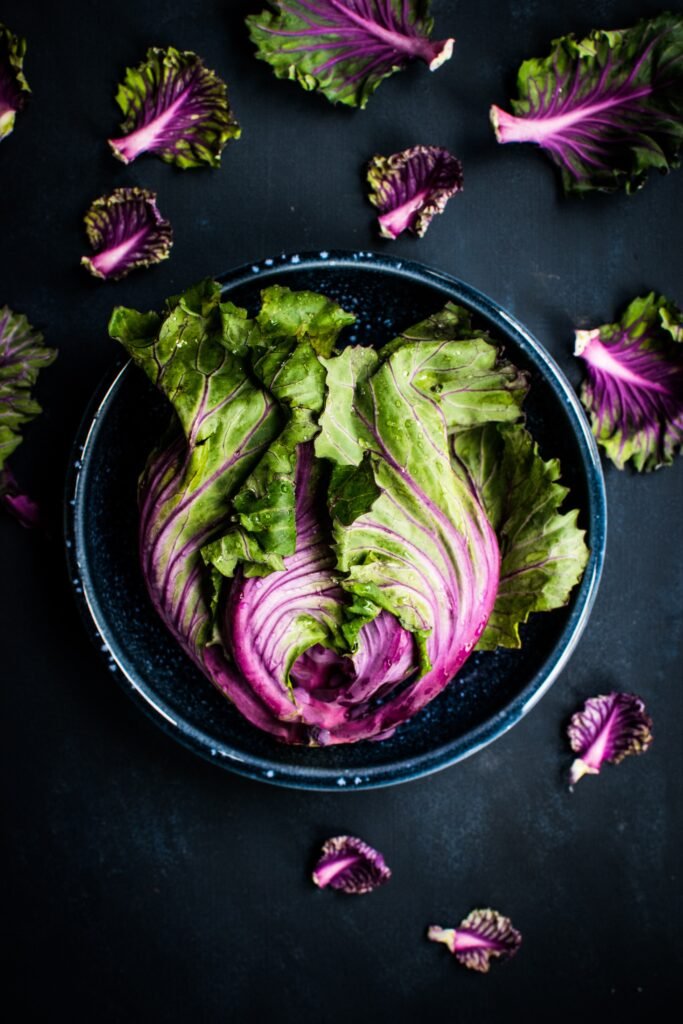Have you ever wondered if there could be a link between kidney stones and high cholesterol? Well, it turns out there just might be. In this article, we will explore a preventative approach to tackle both of these health issues. Discover the surprising connection between kidney stones and high cholesterol levels, and learn about steps you can take to keep both at bay. Get ready to take control of your health and say goodbye to these troublesome conditions.
Understanding Kidney Stones

This image is property of images.unsplash.com.
What are Kidney Stones?
Kidney stones are small, hard deposits that form in the kidneys. They are made up of various substances, such as calcium, oxalate, and uric acid, and can vary in size. Kidney stones can cause immense pain and discomfort when they pass through the urinary tract, and they can also lead to complications if not properly managed.
Types of Kidney Stones
There are different types of kidney stones, each with its own unique composition. The most common type is calcium stones, which are formed when calcium combines with oxalate or phosphate. Other types include uric acid stones, struvite stones, and cystine stones. Understanding the type of kidney stone you have is important for determining the most effective treatment and prevention strategies.
Causes of Kidney Stones
There are several factors that can contribute to the formation of kidney stones. Dehydration is a common cause, as it leads to concentrated urine, making it easier for minerals and crystals to bind together. Additionally, certain medical conditions, such as hyperparathyroidism, urinary tract infections, and metabolic disorders, can increase the risk of developing kidney stones. Lifestyle factors, including a high-sodium diet and obesity, can also play a role.
Symptoms of Kidney Stones
When kidney stones are small, they may not cause any noticeable symptoms. However, as they grow in size and start to move through the urinary tract, symptoms can arise. These can include severe pain in the back or side, blood in the urine, frequent urination, and a persistent urge to urinate. In some cases, kidney stones can lead to complications such as urinary tract infections and kidney damage.
Diagnosing Kidney Stones
If you are experiencing symptoms that may indicate kidney stones, it is important to consult a healthcare professional for proper diagnosis. They will typically perform a physical examination and order diagnostic tests, such as a urine test, blood test, and imaging studies like an ultrasound or CT scan. These tests can help determine the presence of kidney stones, their location, and size, which will guide the treatment plan.
Understanding High Cholesterol
What is High Cholesterol?
Cholesterol is a waxy substance found in the blood that is essential for various bodily functions. However, having high cholesterol levels can increase the risk of developing heart disease and other health problems. High cholesterol occurs when there is an imbalance in the levels of LDL (low-density lipoprotein) and HDL (high-density lipoprotein) cholesterol in the blood. LDL cholesterol is often referred to as “bad” cholesterol, as it can build up in the arteries and form plaques, leading to blockages and narrowing of the blood vessels.
Types of Cholesterol
There are different types of cholesterol that are measured in a lipid profile. LDL cholesterol, as mentioned earlier, is considered the “bad” cholesterol because it contributes to the development of plaque in the arteries. HDL cholesterol, on the other hand, is known as the “good” cholesterol because it helps remove LDL cholesterol from the bloodstream. Triglycerides are another type of fat that can contribute to high cholesterol levels when elevated.
Causes of High Cholesterol
High cholesterol can be caused by several factors, including genetics, diet, and lifestyle choices. Familial hypercholesterolemia is a genetic condition that can lead to high cholesterol levels from a young age. Diet plays a significant role in cholesterol levels, especially the intake of saturated and trans fats found in animal products and processed foods. Lack of physical activity, smoking, and obesity are lifestyle factors that can also contribute to high cholesterol levels.
Effects of High Cholesterol
Having high cholesterol levels can have detrimental effects on your health. It increases the risk of developing atherosclerosis, a condition characterized by the buildup of plaque in the arteries, which can eventually lead to heart disease, heart attacks, and strokes. High cholesterol can also affect other organs, such as the kidneys, and contribute to the formation of kidney stones.
Diagnosing High Cholesterol
To determine if you have high cholesterol, a healthcare professional will perform a lipid profile test. This blood test measures the levels of LDL cholesterol, HDL cholesterol, and triglycerides in the blood. The results will help determine if you have normal cholesterol levels or if further action, such as lifestyle changes or medication, is necessary.
The Link Between Kidney Stones and High Cholesterol
Exploring the Connection
While kidney stones and high cholesterol may seem unrelated at first, there is evidence to suggest that there is a link between these two conditions. Studies have found that individuals with high cholesterol levels are more likely to develop kidney stones. The exact reasons for this association are not yet fully understood, but it may be due to shared risk factors and underlying metabolic abnormalities.
Research and Studies
Research has shown that elevated levels of LDL cholesterol and triglycerides are associated with an increased risk of developing kidney stones. It is believed that these lipids, along with other substances in the blood, contribute to the formation of kidney stones by promoting crystallization and deposition in the urinary tract. However, more studies are needed to fully understand the mechanisms behind this relationship.
Common Risk Factors
Both kidney stones and high cholesterol share common risk factors, such as obesity, a sedentary lifestyle, and poor dietary choices. These factors can lead to imbalances in the body, including increased levels of LDL cholesterol, triglycerides, and other substances that contribute to the formation of kidney stones. By addressing these shared risk factors, individuals can reduce their chances of developing both conditions.
Shared Prevention Strategies
Fortunately, there are several prevention strategies that can help reduce the risk of developing kidney stones and high cholesterol. Lifestyle changes, such as maintaining hydration, following a balanced diet, controlling sodium intake, and incorporating regular exercise, can benefit both conditions. Additionally, limiting the consumption of oxalate-rich foods and reducing animal protein intake can be beneficial for individuals prone to kidney stones. Managing weight, avoiding certain medications, and incorporating heart-healthy habits can also help prevent high cholesterol levels.
Preventing Kidney Stones
Maintaining Hydration
One of the simplest and most effective ways to prevent kidney stones is to maintain proper hydration. Drinking an adequate amount of water each day helps dilute urine and prevent the formation of concentrated mineral deposits. Aim to drink at least 8 glasses of water a day, or more if you live in a hot climate or engage in intense physical activity.
Following a Balanced Diet
Eating a balanced diet is crucial for preventing kidney stones. Focus on consuming a variety of fruits, vegetables, whole grains, and lean proteins. Limit your intake of processed foods, sugary drinks, and foods high in sodium and saturated fats. Including foods rich in dietary fiber, such as legumes, nuts, and whole grains, can also help prevent kidney stone formation.
Controlling Sodium Intake
Excessive sodium intake can lead to increased calcium levels in the urine, which contributes to the formation of calcium-based kidney stones. Limiting your consumption of high-sodium foods, such as processed meats, fast food, and packaged snacks, can help prevent kidney stone formation. Aim to consume less than 2,300 milligrams of sodium per day, or even less if you have a history of kidney stones.
Limiting Oxalate-Rich Foods
Oxalate is a compound found in certain foods that can bind with calcium in the urine and form kidney stones. By limiting your intake of oxalate-rich foods, you can reduce the risk of developing calcium oxalate stones. Examples of foods high in oxalates include spinach, rhubarb, beets, nuts, and chocolate. While you don’t need to eliminate these foods entirely, it’s important to consume them in moderation.
Reducing Animal Protein Consumption
Animal proteins, such as red meat, poultry, and seafood, can increase the levels of uric acid and calcium in the urine, leading to the formation of kidney stones. Reducing your intake of animal proteins and opting for plant-based protein sources, such as legumes, tofu, and quinoa, can help prevent kidney stone formation. It is also important to moderate your intake of dairy products, as they are a source of calcium.
Moderating Calcium Consumption
Contrary to popular belief, calcium-rich foods do not necessarily increase the risk of developing kidney stones. In fact, adequate calcium intake from foods can help bind with oxalate in the stomach and prevent it from being absorbed into the bloodstream. However, it is important to moderate your calcium consumption and avoid taking calcium supplements without medical supervision.
Supplementing with Citrate
Citrate is a natural compound found in certain fruits and vegetables that can help prevent kidney stone formation. It inhibits the crystallization of calcium and can increase the excretion of citrate in the urine. Consuming foods rich in citrate, such as lemons, oranges, and melons, or taking citrate supplements as directed by a healthcare professional, can be beneficial for individuals prone to kidney stones.
Managing Weight
Obesity is a risk factor for both kidney stones and high cholesterol. Losing excess weight can help prevent the formation of kidney stones and improve cholesterol levels. Incorporate regular exercise and follow a healthy, well-balanced diet to achieve and maintain a healthy weight. Consult with a healthcare professional or registered dietitian for personalized guidance and support.

This image is property of images.unsplash.com.
Avoiding Certain Medications
Some medications can increase the risk of developing kidney stones. If you have a history of kidney stones, consult with your healthcare professional to identify any medications that may be contributing to stone formation. They may recommend alternative medications or adjustments to your current treatment plan.
Incorporating Exercise
Regular physical activity is beneficial for overall health and can help prevent kidney stone formation. Exercise helps maintain a healthy weight, improves blood circulation, and promotes urinary function. Aim for at least 150 minutes of moderate-intensity exercise, such as brisk walking or cycling, each week. Consult with a healthcare professional before starting any exercise program, especially if you have underlying health conditions.
Preventing High Cholesterol
Eating a Heart-Healthy Diet
Adopting a heart-healthy diet is crucial for preventing high cholesterol levels. Focus on consuming foods that are low in saturated and trans fats, such as fruits, vegetables, whole grains, and lean proteins. Include sources of healthy fats, such as avocados, nuts, and olive oil. Limit your intake of processed foods, fried foods, and foods high in cholesterol.
Limiting Saturated and Trans Fats
Saturated and trans fats can increase the levels of LDL cholesterol in the blood and contribute to the development of high cholesterol. Limit your consumption of foods that are high in saturated fats, such as fatty cuts of meat, full-fat dairy products, and fried foods. Avoid foods that contain trans fats, including many processed and packaged snacks.
Increasing Fiber Intake
Dietary fiber can help lower cholesterol levels by reducing the absorption of cholesterol in the intestines. Include plenty of fiber-rich foods in your diet, such as whole grains, legumes, fruits, and vegetables. Aim for at least 25-30 grams of dietary fiber per day, but gradually increase your intake to avoid digestive discomfort.
Incorporating Plant Sterols
Plant sterols are natural compounds found in certain plant-based foods that can help lower LDL cholesterol levels. They work by blocking the absorption of cholesterol in the intestines. Foods fortified with plant sterols, such as some margarines and orange juice, can be consumed as part of a balanced diet to help reduce cholesterol levels. However, consult with a healthcare professional before using these products.
Engaging in Regular Physical Activity
Regular physical activity is not only important for preventing kidney stones but also for maintaining healthy cholesterol levels. Engaging in aerobic exercises, such as walking, running, swimming, or cycling, can help increase HDL cholesterol levels and improve overall cardiovascular health. Aim for at least 150 minutes of moderate-intensity aerobic exercise each week.
Maintaining a Healthy Weight
Excess weight can contribute to high cholesterol levels. By achieving and maintaining a healthy weight, you can help reduce the risk of developing high cholesterol. Follow a balanced diet, engage in regular physical activity, and consult with a healthcare professional or registered dietitian for personalized guidance and support.
Avoiding Tobacco Smoke and Alcohol
Smoking and excessive alcohol consumption can negatively impact cholesterol levels and overall health. Quitting smoking and limiting alcohol intake can help improve cholesterol levels and reduce the risk of developing high cholesterol-related health problems, such as cardiovascular disease.
Managing Stress Levels
Stress can affect cholesterol levels and overall health. Find healthy ways to manage stress, such as practicing relaxation techniques, engaging in hobbies, or seeking support from loved ones. Incorporating stress management techniques into your daily routine can help maintain healthy cholesterol levels and improve overall well-being.
Limiting Medications Impacting Cholesterol
Some medications, such as certain diuretics, beta-blockers, and hormones, can raise cholesterol levels. If you are taking any medications that may impact your cholesterol levels, consult with your healthcare professional to explore alternatives or potential adjustments to your treatment plan.

This image is property of images.unsplash.com.
Considering Cholesterol-Lowering Medications
In some cases, lifestyle changes alone may not be sufficient to control high cholesterol levels. Your healthcare professional may prescribe cholesterol-lowering medications, such as statins or other lipid-lowering drugs, to help manage your cholesterol levels. It is important to work closely with your doctor to determine the most appropriate medications and dosage for your individual needs.
Lifestyle Changes for Overall Prevention
Maintaining a Healthy Lifestyle
Adopting a healthy lifestyle can prevent both kidney stones and high cholesterol. Make choices that prioritize your physical and mental well-being, such as eating a balanced diet, engaging in regular exercise, managing stress, and getting enough sleep.
Quitting Smoking
If you are a smoker, quitting smoking is one of the best things you can do for your health. Smoking not only increases the risk of developing high cholesterol but also contributes to the formation of kidney stones and various other health problems. Seek support from healthcare professionals or support groups to help you quit smoking.
Managing Stress and Anxiety
Chronic stress and anxiety can negatively impact both kidney health and cholesterol levels. Incorporate stress management techniques into your daily routine, such as deep breathing exercises, meditation, or engaging in activities you enjoy. If feelings of stress or anxiety persist, consider seeking professional help from a therapist or counselor.
Exercising Regularly
Regular exercise is essential for maintaining overall health and preventing various health conditions. Engage in aerobic exercises, strength training, or activities you enjoy for at least 150 minutes per week. Consult with a healthcare professional before starting any exercise program, especially if you have underlying health conditions.
Eating a Nutritious Diet
A nutritious diet forms the foundation of a healthy lifestyle. Consume a variety of nutrient-dense foods, such as fruits, vegetables, whole grains, lean proteins, and healthy fats. Limit your intake of processed foods, sugary drinks, and foods high in saturated and trans fats.
Limiting Alcohol Consumption
Excessive alcohol consumption can have detrimental effects on your kidneys and cholesterol levels. Limit your alcohol intake to moderate levels, which means up to one drink per day for women and up to two drinks per day for men. If you have concerns about your alcohol consumption, consult with a healthcare professional.
Staying Hydrated
Staying hydrated is essential for kidney health and overall well-being. Drink an adequate amount of water throughout the day to prevent dehydration and promote optimal kidney function. Aim for at least 8 glasses of water a day, or more if you engage in physical activity or live in a hot climate.
Keeping a Healthy Weight
Maintaining a healthy weight is important for preventing both kidney stones and high cholesterol. Follow a balanced diet, engage in regular physical activity, and seek guidance from healthcare professionals or registered dietitians to achieve and maintain a healthy weight.
Sleeping Well
Getting enough quality sleep is vital for overall health. Poor sleep can negatively impact kidney function and cholesterol levels. Establish a regular sleep schedule, create a sleep-conducive environment, and practice good sleep hygiene habits to ensure you are getting the restful sleep your body needs.
Avoiding Unhealthy Habits
Certain unhealthy habits, such as drug abuse and excessive caffeine consumption, can negatively affect kidney health and cholesterol levels. Avoid these unhealthy habits and seek support if you need help overcoming them. Your healthcare professional can provide resources and guidance.
Seeking Medical Advice
Consulting a Healthcare Professional
If you have concerns about kidney stones, high cholesterol, or both, it is important to consult a healthcare professional. They can provide accurate diagnosis, appropriate treatment options, and guidance for preventive measures based on your individual health status.
Screening and Diagnostic Tests
To determine if you have kidney stones or high cholesterol, or to monitor their progression, healthcare professionals may order various screening and diagnostic tests. These can include blood tests, urine tests, imaging studies, and other specialized tests to assess your kidney function and cholesterol levels.
Working with a Registered Dietitian
Registered dietitians are experts in nutrition and can provide personalized guidance and support for preventing kidney stones and high cholesterol through dietary changes. They can help develop meal plans, educate you on appropriate food choices, and monitor your progress to ensure you are making the necessary dietary adjustments.
Developing a Personalized Prevention Plan
With the help of healthcare professionals, you can develop a personalized prevention plan that addresses your specific needs, risk factors, and goals. This plan may include lifestyle modifications, dietary changes, exercise recommendations, and, if necessary, medication management.
Monitoring Cholesterol Levels
Regular monitoring of cholesterol levels is important for individuals at risk of developing high cholesterol. Your healthcare professional may recommend periodic lipid profile tests to assess your cholesterol levels and determine the effectiveness of your preventive strategies.
Monitoring Kidney Health
For individuals prone to kidney stones or with existing kidney conditions, regular monitoring of kidney health is essential. This can involve urine tests, blood tests, imaging studies, and other specialized tests to assess kidney function, stone formation, and overall kidney health. Consult with a healthcare professional to determine the appropriate monitoring schedule for your individual needs.
Conclusion
Importance of Preventive Measures
Prevention is always better than cure, and this holds true for both kidney stones and high cholesterol. By understanding the causes, symptoms, and risk factors associated with these conditions, individuals can take proactive steps to prevent their occurrence or manage them effectively if already diagnosed.
The Power of Lifestyle Changes
Lifestyle changes play a central role in preventing both kidney stones and high cholesterol. By adopting healthy habits, such as maintaining hydration, following a balanced diet, engaging in regular exercise, and managing stress, individuals can significantly reduce their risk of developing these conditions.
Taking Control of Your Health
By being proactive and making informed choices, individuals can take control of their own health. It is important to seek medical advice, adhere to preventive strategies, and work closely with healthcare professionals to develop personalized prevention plans.
Building Healthy Habits for Life
Preventive measures for kidney stones and high cholesterol should not be seen as short-term solutions but as lifelong habits. By consistently incorporating healthy lifestyle choices into daily routines, individuals can not only prevent these conditions but also promote overall health and well-being.

